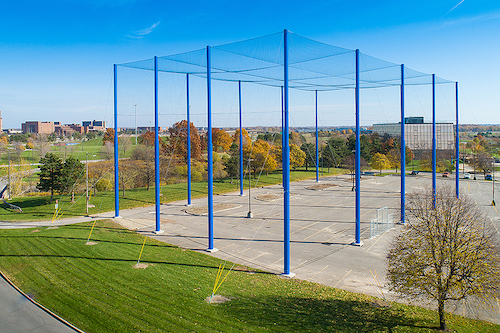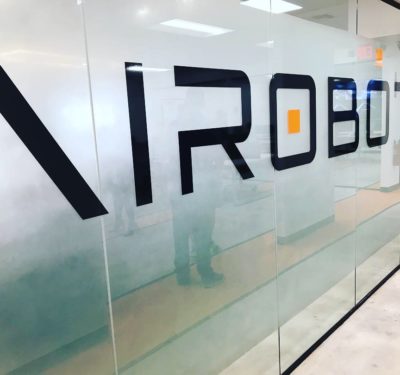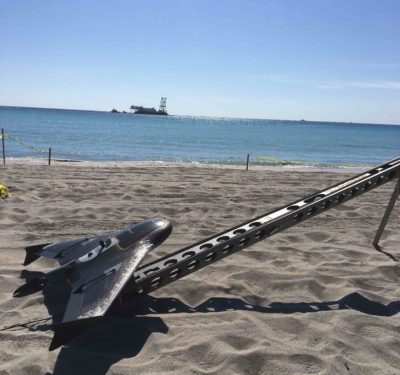
University at Buffalo’s new 24,000 square foot Structure for Outdoor Autonomy Research (SOAR) is among the largest in the U.S.
A new 24,000 square foot, outdoor Unmanned Aerial Vehicle (UAV) testing facility entirely enclosed by mesh nets has opened on the University at Buffalo (UB) campus in New York. Spanning nearly half an acre and standing 86 feet tall, the Structure for Outdoor Autonomy Research (SOAR) is believed to be the United States’ third-largest outdoor, enclosed drone testing facility in terms of cubic feet, according to a release.
Because the SOAR is considered enclosed, researchers can conduct UAV tests that otherwise would be prohibited by FAA rules. GPS-enabled drones can operate inside SOAR as if they were outdoors since its walls and roof are made of nets. UB faculty, students and private-sector companies already have plans to use SOAR for research in BVLOS; sensors and surveillance; small parcel delivery and logistics; and drone fleet operations.
Buffalo’s notoriously brutal winters—where December-March temperatures average well below freezing and 92 inches of snowfall is the norm—give SOAR an advantage over other UAV test sites for conducting certain types of climatic experiments.
“Our plan is to leave the netting up year-round,” says Chase Murray, assistant professor of industrial and systems engineering. “This will enable us to conduct tests and improve the performance of UAVs in the often-harsh winter weather conditions that we encounter.”
SOAR users will benefit from the advanced UAV research and development infrastructure the university already maintains, which includes an advanced UAV flight simulation and training facility as well as labs working on UAV crashworthiness, drone swarms and reconfigurable UAVs. UB’s mobile command and control vehicle will be parked outside of SOAR to facilitate and monitor tests.
Construction of the facility was supported by a $393,000 grant from the Office of Naval Research’s Defense University Research Instrumentation Program (DURIP), which supports university research infrastructure in areas dubbed priorities by the U.S. Department of Defense (DOD). UB’s work under a $1 million grant with the Defense Advanced Research Projects Agency (DARPA) on new Detect and Avoid (DAA) technology will also benefit from SOAR.
Photo credit: Mark Adams






